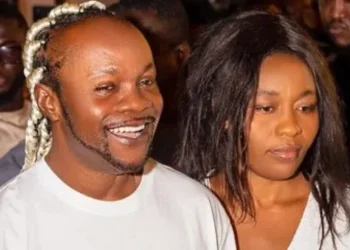The GRAMMYs are not a pure meritocracy where the best song or album automatically wins on the basis of sonic quality alone.
Awards are decided by thousands of voting members of the Recording Academy who must first hear, remember, and be moved by a submission.
That requires sustained exposure: press coverage, targeted listening campaigns, radio and playlist placements, live showcases in key markets, compelling storytelling, and relationships that put music in front of voters’ ears and minds.
Across genres and nations, artists who win or are nominated typically combine outstanding music with strategic campaigning, including professional PR, label or distributor support, international touring, visibility on influential playlists and media outlets, and sometimes a long-term presence in markets where awards voters reside and work.
Without these components, even excellent records remain unknown to the gatekeepers.
Ghanaian rapper and creative strategist C-Real has called for a more strategic and coordinated public relations approach to support Ghanaian artists in the GRAMMY submission and consideration process.
C-Real made the remarks in response to growing excitement among some Ghanaians celebrating their artists’ inclusion in the GRAMMY consideration phase. “We need to push the right PR for the GRAMMY submissions,” C-Real said.
“It’s not just about celebrating the consideration; we should be looking at how to make it to the main nominations. That’s where the real work and impact lie.”
C-Real
His comments come at a time when several Ghanaian artists, including Shatta Wale, Black Sherif, Epixode, M.anifest, and Moliy, are part of this year’s GRAMMY consideration list, sparking renewed discussions on how Ghana moves beyond recognition to achieve actual nominations and wins.
Why Ghana is Falling Behind

Many messages from industry figures underscore that Ghanaian artists often fail to submit works for GRAMMY consideration, or they make mistakes in the submissions.
For instance, Myx Quest noted that many artists “lament their absence at the Grammys without submitting their works for nomination.” Similarly, the artist MOGmusic was disqualified because his promotional materials incorrectly used the GRAMMY logo.
These errors suggest that artists lack both knowledge of the rules and attention to detail, things a good PR campaign could help manage.
Part of what allows some artists to become frequent nominees is having established networks, peers who are Academy members, and visibility among those who vote.
As one source pointed out (Appietus, speaking about Rocky Dawuni), being known to, or being friends with, people inside the Academy helps ensure your work is considered. Ghana currently has few in such positions, though recent developments like Richie Mensah joining the Academy Voting Membership show promise.
Outside of submission and voting, artists need ongoing PR to build narratives, brand identity, and international visibility. Ghanaian acts are doing well in some arenas, strong streaming numbers, innovative music, cross‑border collaborations, but these need to be leveraged systematically.
For many, a hit song does not translate to consistent awareness among GRAMMY voters or international media.
From Talent to Recognition

Ghana has the talent, the creativity, and the cultural richness to win consistent international recognition at the GRAMMYs. What steps in many past campaigns have been missing are strategic investments in visibility, coordinated PR, targeted voter engagement, diaspora mobilization, and long-term presence in key markets.
With a concentrated effort that respects ethical boundaries and leverages both public support and private partnerships, Ghana transforms artistic excellence into nominations and wins that reflect its contribution to global music.
Music industry leaders, cultural ministries, private sponsors, and diaspora organizations should convene within the next three months to create a GRAMMY campaign task force, allocate an initial campaign fund, and identify the first slate of submissions to pilot this approach.
A sustained, professional PR strategy is not a luxury; it is the pathway by which Ghana’s music will be heard, remembered, and honored on the world stage.






















